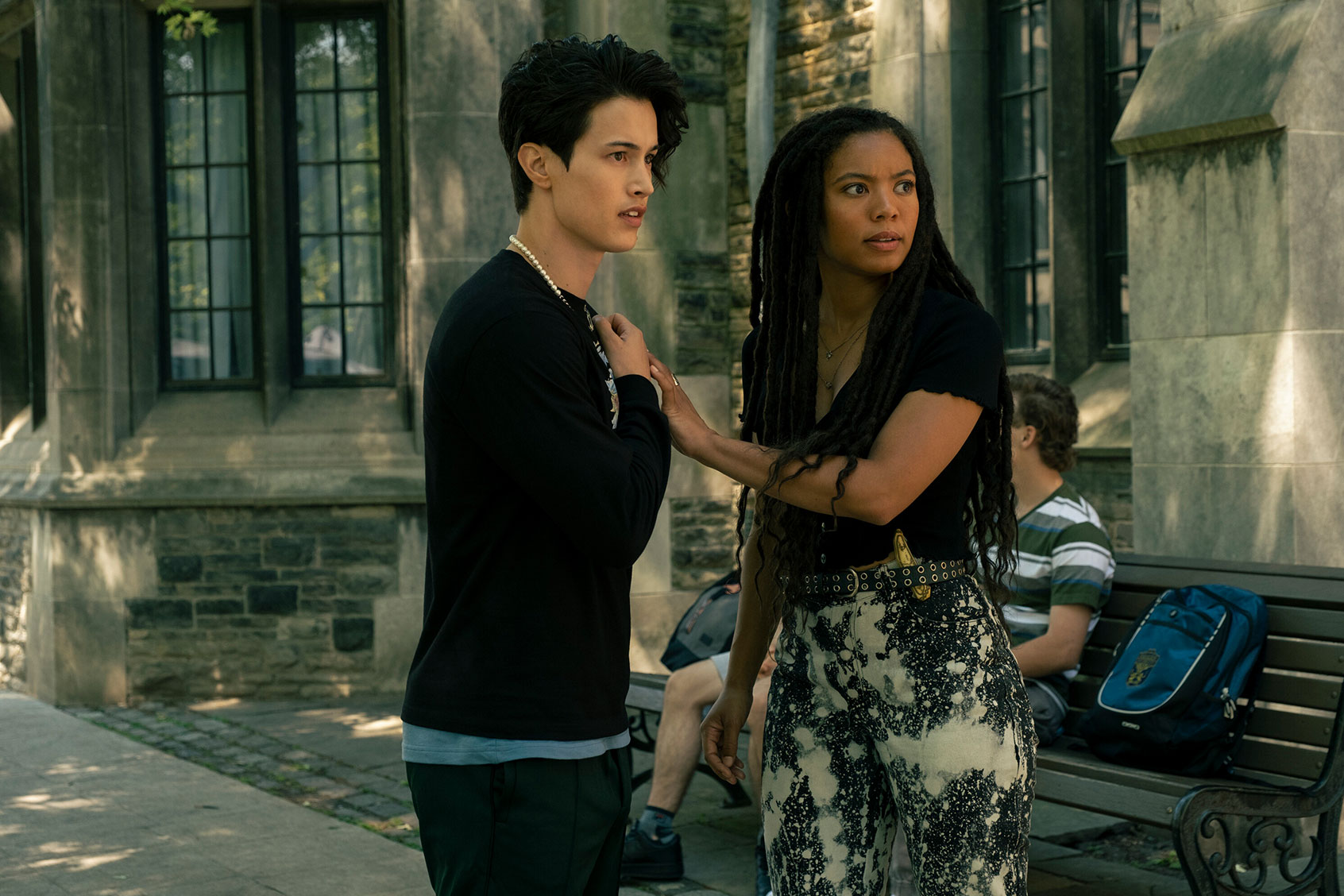"Gen V," the YA "The Boys" spinoff, centers on the lives of college students who have superpowers and are being trained to join The Seven in "The Boys" (think along the lines of the Disney Channel hit film of my childhood, "Sky High"). "Gen V" is a solid successor to the offensively good "The Boys" — the Prime Video hit revels in its hedonistic superheroes who are mega-violent and masochistic — and part of that has to do with one of the main characters, Jordan Li (played by London Thor and Derek Luh).
"Gen V" sometimes lags in areas, but it breaks all young adult drama cliches introducing viewers to the bi-gendered superhero, Jordan, giving the audience an interesting new take on genderfluid representation in media.
Jordan is one of the upperclassmen at Godolkin University, who is training to become a superhero at the school. The Korean-American student is an overachieving, cunning and (most of the time) self-centered 20-something; they also have the ability to shapeshift between two different-gendered bodies and identities, each of which comes with its own unique powers and identities. The male Jordan has invincible strength and invulnerability, while the female Jordan is agile and the ability to generate telekinetic blasts, making for an interesting dichotomy in their fighting styles.
Not only is Jordan an interesting character because of their layered powers, but in the show, they are one of the most popular characters because of their number-two ranking in their class. "Gen V'"s main character Marie Moreau (Jaz Sinclair), a blood-bending freshman dying to get into the exclusive superhero training major and class is drawn to Jordan's grit and innate ability to want to do good. Their relationship evolves from an adversarial one to a more romantic one as the show's new episodes depicted last week.
As the show develops, it reveals more and more about Jordan's complicated relationship with their parents who find it difficult that they switch between genders. Jordan's father, in particular, would prefer they conform to societal standards and live as a cis-gendered male. Meanwhile, Jordan struggles to be accepted in a world hellbent on stuffing them into a simple, uncomplicated gender categorization.
Since the series, which has a stacked ensemble cast, is only halfway through the first season, Jordan's story as a gender-bending superhero is mostly unwritten and is still forming, but it's incredibly fascinating that the show decided to tackle the idea of the gender binary in this way.
Expanding beyond the realm of television, it is possible that the creators of "Gen V" took inspiration from Ursula K. Le Guin’s 1969 science-fiction novel “The Left Hand of Darkness.” The novel takes place on a planet called Gethen, also known as Winter, where the inhabitants, called Gethenians, are gender-neutral for the most part but can morph into men and women at different points in their lives. This Gethenian society has also not developed gender roles and does not imagine gender in the same way that our reality does. Overall, the novel blew the gender binary wide open during a time in which cis-gendered-focused feminism was at its beginnings. Charlie Jane Anders said in The Paris Review that the novel reveals that "the biggest lie that society tells us about gender is that the identities we’re assigned at birth are natural and that anyone who flouts the boy-girl industrial complex is perverse."
Using shapeshifting as a way to represent the evolving and ever-transforming gender identity of transgender, nonbinary and fluid people has been done before, but in Jordan's case, identifying as a bi-gendered Asian-American superhero is redefining our preconceived ideas of what superheroes look like as we all suffer from the dull IP-driven Marvel burnout. It is significant progress in representation worth that's worth noting and exalting.
While Jordan is played by cis-gendered actors — a decision that raises its own questions about representation — the character never feels like a caricature or a sidekick. They are a desirable love interest, they are popular, they are uber-strong and powerful and they do not dim themselves to be easily digestible for a white America so deadset on telling them they are not traditional enough to be a hero. They are a hero and they come in different genders.
Read more
about the gender binary

